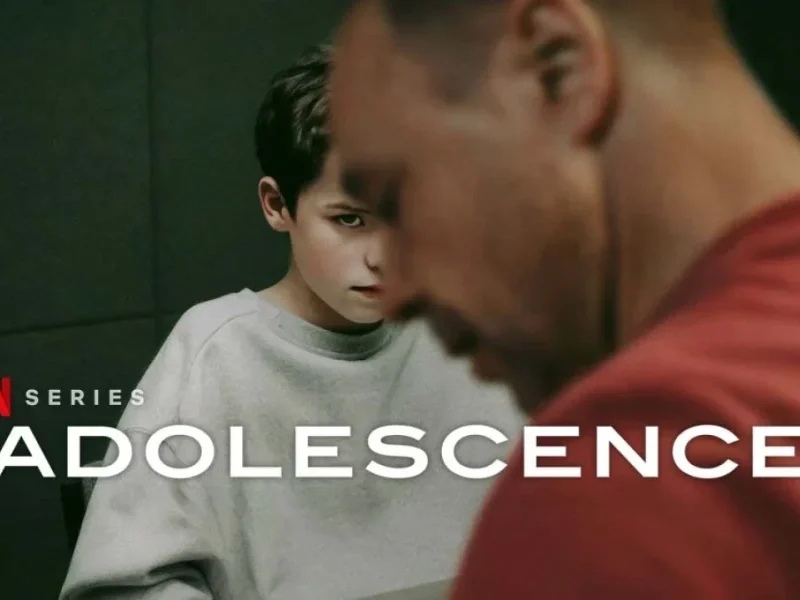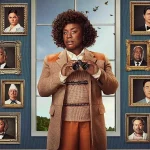Adolescence is a crime drama miniseries on Netflix that released March 13. It contains 4 episodes with each of them stemming from the same incident but following very different events that follow that incident. Impressively, every episode is shot in one continuous take. Despite that technical feat, it pales in comparison to the themes and content of the show.
Point 1: Time to Listen
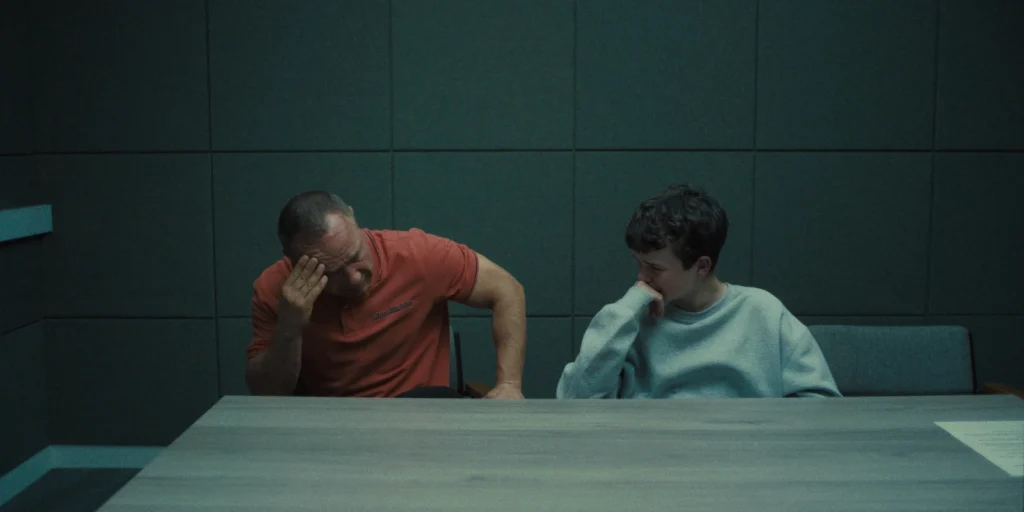
The topic of incel culture today is important to learn about – not just what it is but also what it isn’t and how everything surrounding it is impacting kids especially. If you look for content online, you can find plenty. Of course there are plenty of creators targeting that incel community. If you don’t know the names of these figures, I won’t do you the disservice of introducing them to you. However, the creators speaking out against that community have slowly started becoming part of the problem. The ridiculing and criticism of those who may and do fall into that “subculture” (for lack of a better term) often ends up creating a self-fulfilling prophecy where those people become more likely to fall into it than if they weren’t targeted in the first place.
Because this will be a delicate topic, I want to make it very clear that I will be distancing myself from how we should deal with this topic and what should or shouldn’t be done for the most part. As this is a review of the show, I will instead focus on what the show does or doesn’t do and what I think of it.
So what does the show do? It shows the impact of the culture rather than focusing on the culture itself. How does it affect the main character, Jamie and those around him? What kind of things does it lead to? We get to see how much or how little many of these kids even understand despite how much real estate it takes up in their psyche and worldview. How or why we get to this point is not the focus of this show – and I legitimately appreciated that. Every bit of media does not have to start at the beginning and get to the end. Instead, Adolescence takes the approach of trusting the audience to fill in the blanks even if it is ambiguous so they can focus on the issue at hand.
I can understand that some audiences will feel like it’s missing parts of the story to make it complete. I however fall squarely on the other side. I think not having the whole story is the best way to experience what many of the characters in the show experience: they don’t know how we got here, but we did. How do we grapple with this reality and where do we go from here? Those are questions that Adolescence is more interested in exploring rather than being an information piece on incel culture or a diatribe against the people that perpetuate it one way or the other.
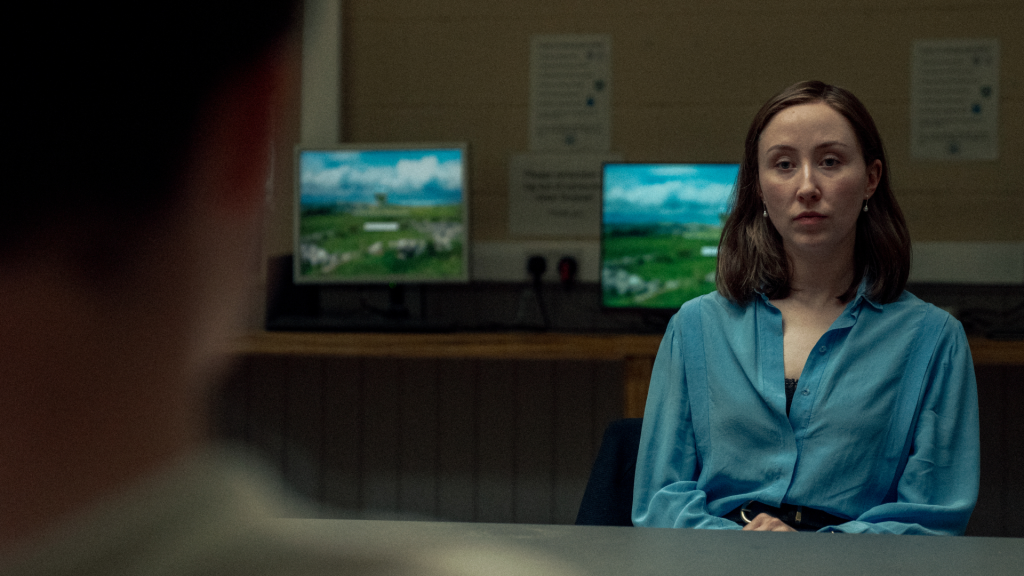
To me, the most interesting part of the show is that it was more interested in listening to what happens rather than digging up why it happens. It of course is important to explore the other aspects of all this, but if the show hits you just right, it will incite you to do that research yourself because of how the consequences of all of it made you feel.
I keep talking about incel culture, but another way of framing it would be the redefining of masculinity to kids. There are endless pieces of media going one way or the other on what being masculine really means. Again, I’m not here to put my own opinion on it out there. But I loved that the writers didn’t care to answer that either or tell the audience what’s right. It just puts the weight of this heavy subject on kids growing up today in front of you to see. In a world so quick to glorify or cut down these topics, Adolescence bypasses it altogether to show you it doesn’t matter where you fall on this subject because regardless of what you say or do, there are people who are being fundamentally changed by the conversations about it.
Sometimes it’s okay to not get an opinion or closure – sometimes, all we need to do is listen.
Point 2: Ripples in the Water
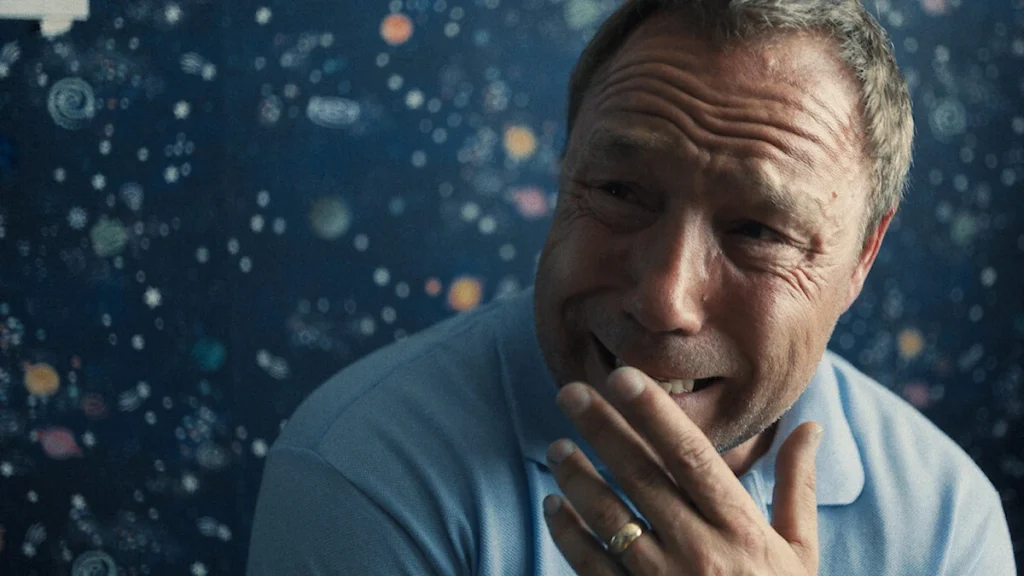
The other big decision the show makes is to put a big focus on parents and other adults in and around this incident. On top of that, it doesn’t end up really putting much of an emphasis on the victim and their family. I could see someone feeling like that is missing a big chunk of the story, but again, I feel like the focus of the writers is on something very specific and they executed what they were aiming for very well. Whether you want more to be included or not is a fair expectation, but I don’t think it is necessarily a failing of the show.
Episode 1 putting the family and those in the precinct front and center. Episode 2 then chooses to make the two detectives the protagonists despite being surrounded by kids all episode. Episode 3 frames the psychologist as the audience proxy in the conversation with Jamie while episode 4 just shows the impact of it all on Jamie’s family. Outside of episode 3 where Jamie does eat up a large amount of screentime, most of the show isn’t interested in Jamie himself all that much. Personally, as a writer, I find that very interesting. As much as some may have wanted the story to be about Jamie and lead up to the incident, I actually think many movies and shows don’t focus enough on the ripples that these big actions cause.
Adolescence manages to buck that trend by showing how the psychological weight of these topics swirling incessantly in the cesspool of kids’ social media presence is not limited to those inside of it. But rather, it has significant impacts on everyone around them. The generation gap between parents and their kids has always been a thing. You can watch coming of age movies from the 50’s and see themes of parents not understanding the culture of their kids at school. However, I firmly believe that that gap has reached a point that no generation in the past had ever approached. The layers of inside jokes and memes and emojis used to convey complex messages with nothing but a symbol on a social media post that parents could not decipher even if they saw it is a level that is unlike any before this current generation.
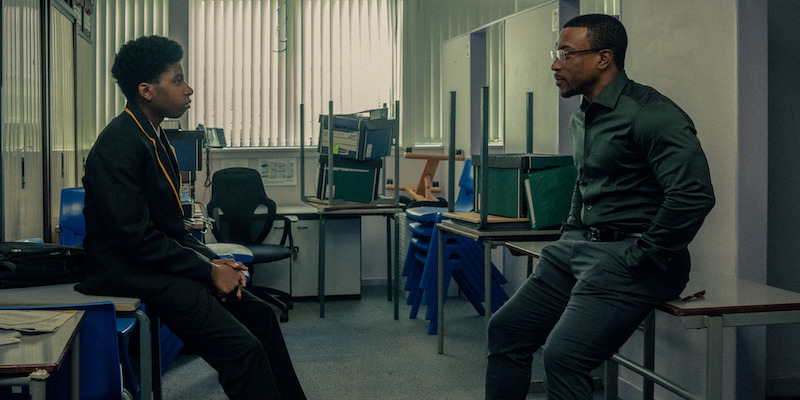
How do parents navigate these waters and provide the best environment and upbringing to their kids despite all this? Jamie’s parents are portrayed as everyday people who have their pros and cons but in general have been good parents to their kids. Yet Jamie still went down this path. What does that mean then? Were they bad parents? Well no, because they have a daughter who seems to not be embroiled in all of this. But the show is also wise to make her also express that she has seen and is aware of these things. Bullying has been present in schools forever, but how do we as a society find the balance of what’s normal and what’s not for our kids in an ever-changing environment that we can barely keep up with? At what point does that start to erode our own ability to judge how well or not we are keeping up our end of the bargain? These are all questions Adolescence poses without giving any answers. It’s very powerful and it does the right thing, in my opinion, in holding back from positing any judgment on any of it but rather letting you find your way through this web.
Point 3: Owen Cooper
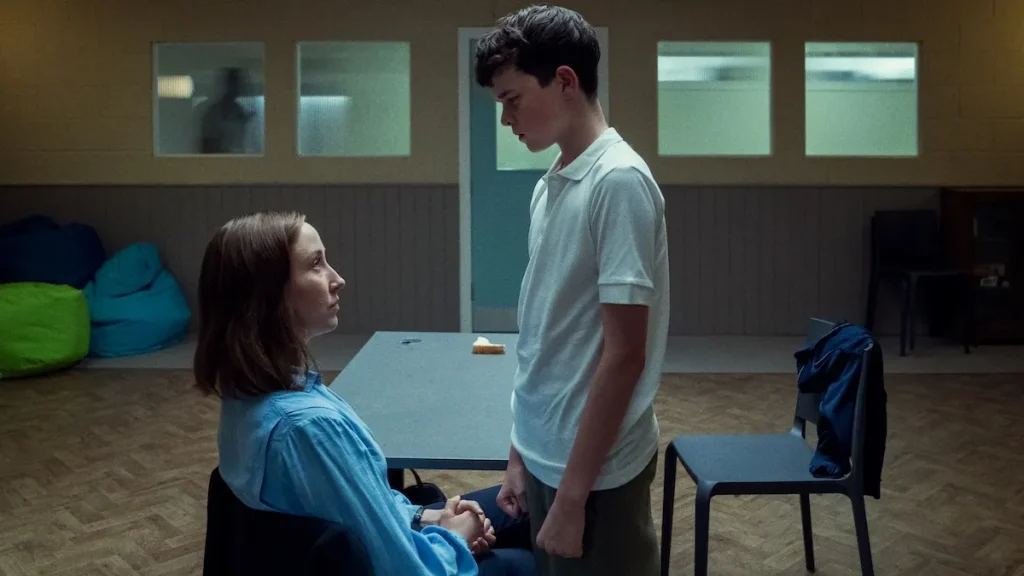
I don’t have a fun punchy name for this point. I’m just going to spend this point gushing about this now 15-year-old actor who has potentially given the best child-actor performance ever. Definitely, the best debut child-actor performance, without a doubt – sorry Macauley and Haley, it’s not a slight to you guys, this performance is just that deserving.
The fact that it’s one continuous shot in each episode means that everybody needs to nail their lines and their acting. There are no second takes. It’s one thing to expect that of adult actors who have done this their whole life to do that – and even then it’s very impressive. But for a teen acting on screen for the first time to deliver potentially the most real and believable performance of the whole show just blew me away.
I was already impressed in episode one where you felt legitimately bad for this kid being dragged out of his home unceremoniously by the police to the precinct and going through a gamut of emotions in this high-stress environment. But when episode 3 hits with the psychologist and seeing Cooper find the rage and intimidation in his performance despite the power dynamic at play just is unfathomable if you don’t watch it yourself. I don’t know if I’ve ever felt such a threat for an adult with just one 13 year old in the room than I have in that episode.
The ability to hit those highs and lows in emotions while showing vulnerability and a lack of his own identity presents such nuances that I don’t even expect out of most adult actors I watch. This show is an absolute acting masterclass and if for nothing else, you should watch it for that.
At the same time, I don’t want to focus on just Cooper when he is only present for an episode and a half. The work put in by the rest of the cast, particularly Stephen Graham as the father, Ashley Walters as the main detective, and Erin Doherty as the psychologist, is just as commendable and a show like this just doesn’t land if they don’t match up to the bar set by Cooper.
Point 4: Art Imitating Life
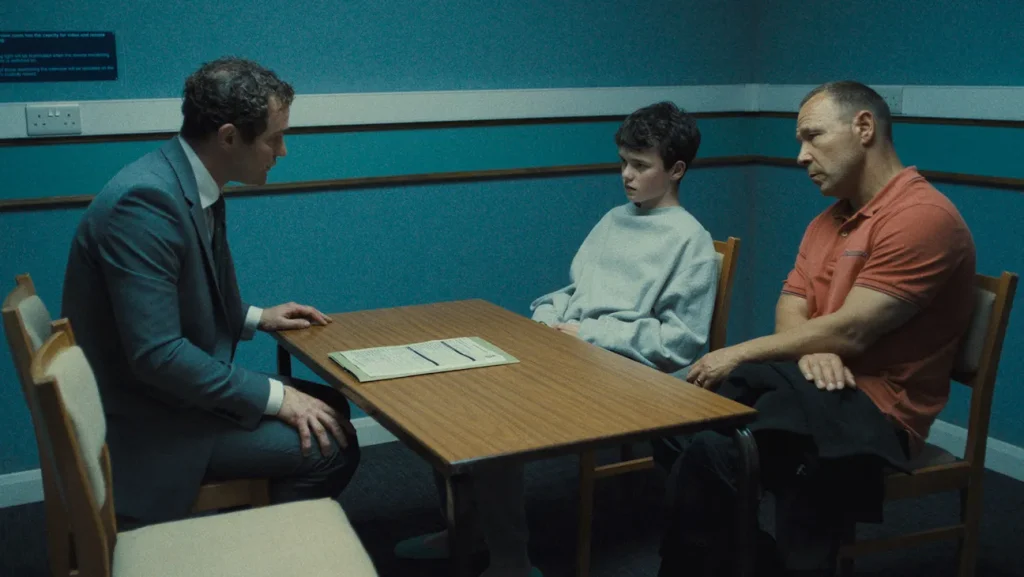
The final thing I want to discuss is a more global, encompassing thing that the show nails in the way that it is made: it feels real. There is nothing wrong with fantastical shows that have a sheen to them. There is a place for all types of art. But too often, even media covering more down to earth topics fall into those trappings and thus taking a lot of the stakes away from the content on screen.
The amount of police procedural shows that stuff TV channels and streaming services miss the mark on what it’s actually like in those situations. Now I don’t expect 100% accuracy from every show – there are times that the dramatic embellishment is better. But it’s a common trend that British crime shows are much better at replicating the actual due process than American shows are. I’m thinking about shows like Broadchurch or Criminal: UK. There are plenty of others, but those are the ones that came to mind first. It’s just less common to find American shows gaining traction with their ability to accurately portray the process.
The other way it feels so real is the thing that I mentioned early on but then didn’t talk about much: the continuous shots. It really feels like you are in the moment with the characters and following the situation as it happens because it is happening in real time. There are no time jumps or anything you can learn behind the scenes because the camera never cuts. There are however creative choices made to switch over who we are following to give certain actors breaks, but overall the energy of the show is palpable, especially in the first two episodes.
The third episode and fourth episode can feel a little lethargic due to that same reason though. Do you need to spend an hour where there is only maybe 15-20 minutes of “action” in the episodes? Maybe not. But I think the show makes it work personally. It’s definitely a real change of pace, but the quiet moments themselves feel earned as the show allows you to introspect on each new layer that is uncovered. Perhaps I’d have done it differently, but I have complete respect for the artistic decision to do it the way that they did.
Overall, Adolescence is a very important and powerful show for today. I highly recommend everyone to watch it. It’s not necessarily the most fun watch, but it will be one that is worth it.

